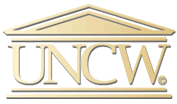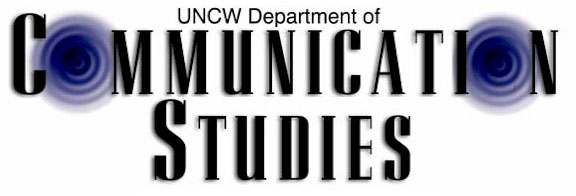Course
Completion and Gateway Requirements: Classes typically coded “COM Majors
ONLY” may occasionally be opened to PCOM majors or all students. This may
most commonly occur during Summer terms. Please be aware, however, that to
become a full-status COM major, you MUST complete the gateway courses (COM
105 and COM 200) SUCCESSFULLY, i.e., with a grade of “B” or higher in each.
If you do NOT successfully complete those two courses, you cannot earn full
COM major status, even if you complete one or more COM classes apart from
the gateway courses.
Syllabus
Course Description: The mass media and the
content they provide are pervasive and powerful forces that shape our
consciousness as individuals and our collective orientation as members of
various sub-cultures and the larger dominant culture. Even though media and
content are so visible, the direct effects are difficult to measure and
define. This class explores some of the core issues central to understanding
and debating the power of these media and the roles they play in our society.
A brief list of some of the recent controversies will illustrate the
importance and variety of issues. Should news agencies be able to report on
military activities that may provide information to our enemies? Should
advertising of specific products be regulated?
This class moves quickly. There will be a heavy amount
of reading in order to grasp the ideas we must master during our short time
together. Some of the text will be discussed in class. However, you are
responsible for all the readings as assigned. Readings and lecture
material are fair game for quizzes. Please come in with questions from the
reading! What does it mean? How does it apply? How do we do it? What does
it look like? These are all good questions and will help make the class
meaningful for you.
Course Objectives: After completing this course
the successful student will:
1.
demonstrate knowledge of core concepts (master vocabulary);
2.
demonstrate ability to apply course concepts,
3.
demonstrate ability to carry out secondary research,
4.
demonstrate critical thinking and speaking about core issues
surrounding media and society
A word to the wise: Read the book on time
and always be asking yourself how this applies to 1) your
understanding and 2) your practice of
communication.
Course Policies: You are expected to attend every
class period. However, since life happens, you are allowed one absence
without automatic penalty as a personal day. Use it wisely if at all.
|
Number of Absences Recorded |
Highest Grade You Can Earn (regardless of grades
earned on assignments) |
|
No absences up to one absence |
A |
|
Two absences |
B |
|
Three Absences |
C |
|
Four absences |
D |
|
More than four |
F |
No make-up quizzes will be given unless there are extreme
circumstances and those circumstances are handled responsibly by the student.
Assignments must be typed and handed in on day stated in syllabus unless
otherwise noted. Any plagiarism will result in failure for that assignment
and additional work by the student on all future assignments to prove that the
work is the student’s own.
Honor Code:
“It shall be the responsibility of every faculty member, student,
administrator and staff member of the university community to uphold and
maintain the academic standards and integrity of the University of North
Carolina at Wilmington” (1997-1998 Student Handbook and Code of Student
Life p. 91). All student work and conduct must in accordance with the
academic honor code and other codes informing the university community.
Text: Taking Sides: Clashing Views on
Controversial Issues in Mass Media and Society (8th ed.).
Alison Alexander, Jarice Hanson. McGraw-Hill, 2005.
You are strongly encouraged to visit the website: www.dushkin.com/online/
Once there follow the links to our text. I also recommend the following site
as a great primer on critical thinking crucial to the debates:
http://www2.sjsu.edu/depts/itl/
Portfolio Artifacts:
One of the culminating experiences of a
communication studies degree is the completion of COM 490 Discipline
Capstone, a course that may include the preparation of a personal
portfolio to organize and showcase your abilities. I encourage you to
retain items from this class, whether produced independently or in groups,
for inclusion as portfolio artifacts. Beyond the Capstone class,
your portfolio may prove a valuable tool as you seek entry into a graduate
program or employment in your areas of specialization.
Assignments and Grading: There are 290 points
available in the course. You may keep up with your grade by dividing the
points you have earned by the points available. For instance if you got 12
out of 15 on the first quiz and 10 out of 15 on the second you would have 22
out of 30 points. 22 divided by 30 equals .733. That would mean you
currently have a C in the course. . I will be using a modified plus/minus
system. 91% and above is an A. 90% is an A minus. 87-89% is a B plus,
84-86% is a B, 80-83% is a B minus.
Assignment |
Point
Value |
|
Seven Quizzes @ 15 points each |
105 |
|
Chapter Presentation |
30 |
|
|
50 |
|
In-class debate |
30 |
|
Ethical Analysis Paper |
25 |
|
Final Exam |
50 |
Assignment
Descriptions
Quizzes:
Quizzes are designed to see that you’ve read the text with comprehension.
They are not designed to trick you but to help us have more active discussion
and participation in class. The quizzes will consist of 3-4 T/F and 2-3
multiple-choice along with a short essay question. They can be taken in teams
of up to three people. I reserve the right to break up teams without
warning. I would do this if I felt that teams were taking turns doing the
reading rather than each member reading to try and learn the material and help
the team.
Background Presentation: As either a refresher or an introduction to some
of the basic concepts and trends in mass communication we are going to have
some fun, creative, but insightful chapter presentations of an introductory
text in mass communication. Ideally these will be team presentations and will
involve a creative summary of the key ideas.
Ethical
Analysis Paper: I have put Media Ethics: Cases and Moral Reasoning
by Clifford Christians et al on reserve. You must analyze one of the cases in
the text by carrying out at least the following steps:
1)
Pick a case that is of interest to you. Read the case.
2)
Read pages 3-8 of the text and apply the Potter Box to the case.
3)
Make a complete argument (claim, support, explicit reasoning) for what
would be the best realistic outcome for the case in terms of general policy or
specific behaviors.
4)
Briefly identify what values are most important in the decision you
have reached. For instance is the “right to privacy” the core value or is it
“public’s right to know”?
Papers should be one page single spaced.
Preparation for Debate Paper: Lousy debates are a waste of time for
everyone involved. To try to avoid some bad debates and boring discussions
your team (two teams per group) will prepare a paper that addresses key
concerns for the debate and provides ratings for each team member for their
“behind the scenes” contributions to the debate. Each paper should have the
following sections:
1)
Paragraph explaining the issue you are debating and its importance
2)
Key arguments you plan to make in defense of your position
3)
Key arguments you anticipate your opponents making and your response to
each
4)
Discussion Questions that you think will help the class benefit from
the debate
5)
References: at least 4 quality outside sources that are actually used
(cited) in your debate
6)
Outline of your case
Papers should be between 3-5 pages
In-Class
Debate: Your paper is your plan for the debate. You will also be
graded on how well you perform what you plan. Clarity of presentation and
your ability to educate your audience on key issues, values, reasons, etc.
will be most important. Also important is the energy, command of material,
sharing of roles, eye contact, etc.—all the things your mama taught you in COM
110. They should focus on clarifying the issues but not be overly polite and
timid. Cooperate, share information, but ultimately try and offer the
stronger case and point out weaknesses in the oppositions’ case.
Final
Exam: This exam will be cumulative. It will focus on the theories
discussed in class on some of the “big picture” issues that emerge over the
course of the semester.
Schedule of Sessions
Reminder: We will read about a chapter per session.
That is about 20 pages of reading per session. That requires a steady
commitment on your part four nights a week. If that will be a problem,
perhaps summer school is not for you at this time.
|
Session |
Homework
Due |
Focus of
Class Session |
|
Monday 6-27 |
Welcome Back |
Course Overview
Merchants of Cool video
Form Background Presentation Teams |
|
6-28 |
Introduction and
Identify which issue/chapter you would like to DEBATE |
Discuss readings
Form debate teams
How to debate issues workshop |
|
6-29 |
Read Issue #1 and work on background presentation |
Discuss Issue #1
The Electronic Storyteller |
|
6-30 |
Read Issue #2 and work on background presentations |
Discuss readings
Quiz on issues 1 and 2
Tough Guys video
Background presentations workshop |
|
Independence Day—Thank a Veteran! |
|
7-5 |
Prepare for presentations |
Present on topics 1-6 |
|
7-6 |
Prepare for presentations |
Present on topics 7-11 |
|
7-7 |
Read Issue TBA
Prepare for debates—come in with some outside
research and questions |
Discuss reading
Debate workshop |
|
7-11 |
|
|
|
7-12 |
|
|
|
7-13 |
|
|
|
7-14 |
|
|
|
7-18 |
|
|
|
7-19 |
|
|
|
7-20 |
|
|
|
7-21 |
|
|
|
7-25 |
|
|
|
7-26 |
|
|
|
7-27 |
|
|
|
7-28 |
Finish Ethical Analysis papers
Review for final |
Ethical analysis papers are due at beginning of class
Final Exam |
Background
topic: _________ Date: ___________
Debate
issue: _____________ Date: ___________
Grades:
Quiz one
_____/15
Quiz two
_____/15
Quiz three
_____/15
Quiz four
_____/15
Quiz five
_____/15
Quiz six
_____/15
Quiz seven
_____/15
Background
Pres. _____/30
Debate
Paper: _____/50
Debate: _____/30
Analysis: _____/25

